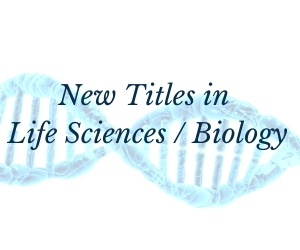"This text serves as an educational tool merging good marketing practices with the promotion of STEM subjects and research. The book is applicable to global environments. A useful resource for aspiring and practicing researchers."
CHOICE
Applying for grants, bidding for project funding or helping to sell products are part of the day to day life of a research scientist. Drawing on experience at leading research institutes and companies, the authors of this book turned to best practice in marketing to make 'selling science' interesting and rewarding for scientists.
The central thesis of the book is that effective marketing means planning for the impact of research, and this is a skill that every scientist can easily acquire. It sets out a structured approach, supported by tools, checklists and hints from experience so that delivering impact from research becomes 'just the way things are done around here'. Starting with gathering background information (in much the same way as preparing the introduction to a scientific paper), the book describes methods to analyse the data and to implement a communication plan.
The book is a valuable resource for research scientists from any discipline, and for team leaders wanting to involve members of their team in developing their organization's strategy.
Sample Chapter(s)
Foreword
Chapter 1: Introduction
Contents:
- Foreword
- Preface
- About the Authors
- Introduction
- Information Gathering
- Analysis
- Deciding the Actions to Take
- Recording the Analysis and Reportingthe Outcomes
- How to Use This Book
- The Last Word
- Bibliography
- Index
Readership: Early career research scientists from all disciplines (physics, chemistry, biology, mathematics, engineering etc) — at PhD / post-doctoral level, working at universities and national/international research establishments and commercial organizations; Doctoral training centres as these include some aspects of business skills, for example, the Manchester and Liverpool Doctoral Training Programme.
"This text serves as an educational tool merging good marketing practices with the promotion of STEM subjects and research. The book is applicable to global environments. A useful resource for aspiring and practicing researchers."
CHOICE
"The book is valuable for scientists as a quick introduction to the idea of improving the impact of their research. Also, it can be useful for those in research transfer roles in research centres."
Contemporary Physics

Dr Steven Judge was a nuclear physicist at the UK's National Physical Laboratory and the Laue-Langevin Institute in France, before following a career in technical management that included several years as a marketing manager at Amersham International plc (now part of GE Healthcare). He has led successful teams at the National Physical Laboratory, bidding for and delivering multinational projects, working at the interface between academia and industry.
He has a degree in Physics from the University of Oxford, a PhD in radiation physics and post-graduate qualifications in marketing and programme management. He is a Fellow of the Institute of Physics and Director of the Ionizing Radiation Department at the Bureau International des Poids et Mesures, the world focus for the international measurement system.

Richard Lucas has extensive commercial and management experience having worked for Hewlett Packard in Europe for over 20 years. As a certified project and programme manager, he led diverse teams to define and successfully sell major projects to UK government agencies and multinational companies.
Over a subsequent five-year period at the National Physical Laboratory, Richard held a variety of Group Leader positions working across a range of research areas and science disciplines. In this internationally competitive environment, he has provided support and mentoring to research teams seeking funding.





























